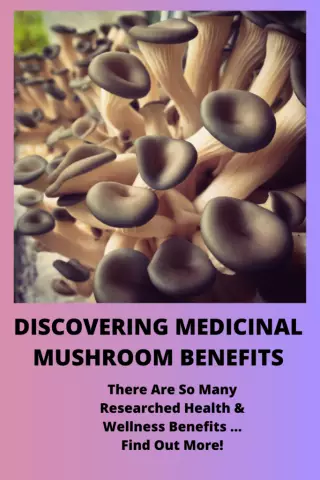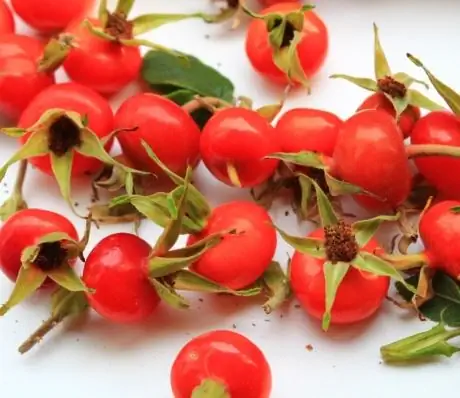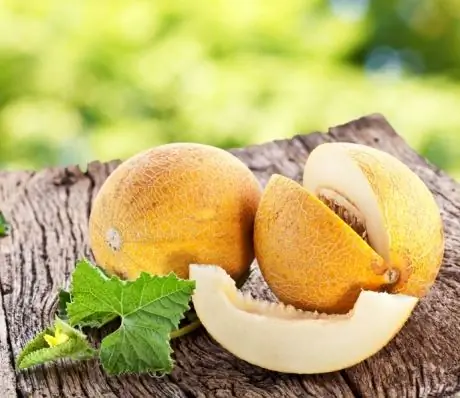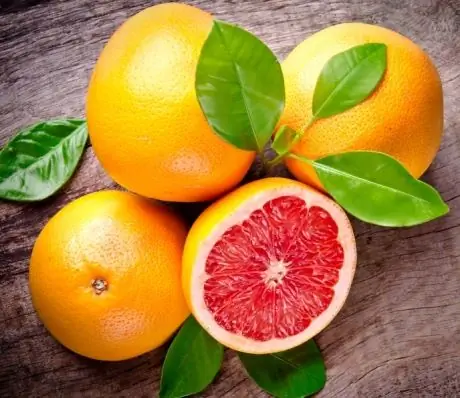- Author Rachel Wainwright wainwright@abchealthonline.com.
- Public 2023-12-15 07:39.
- Last modified 2025-11-02 20:14.
Medicinal letter
Instructions for use:
- 1. Chemical composition
- 2. Useful properties
- 3. Indications for use
- 4. Contraindications
- 5. Home remedies from the initial drug

The initial letter is medicinal (apothecary, medicinal purse) is a perennial herb of the Lipocystaceae (Lamb) family, distributed throughout the European territory, the Caucasus, the Urals and Western Siberia. It grows in dry and wet meadows, uplands, in clearings, in thickets of bushes and on forest edges. The initial letter grows up to 1 meter, has a straight stem, leafless or rarely leafy in the upper part, pubescent with basal leaves collected in a rosette. The flowers are reddish-purple in color with a characteristic pronounced odor, propagation by seeds and vegetative.
Chemical composition
The stem, leaves and flowers of the initial letter of the drug contain a large amount of proteins, alkaloids, flavone glycosides, essential oils, resins, vitamins K and C, betonycin, stachydrin, calcium salts, anthocyanins, choline. The seeds contain a fatty oil.
Beneficial features
The medicinal letter has the following useful properties: diuretic and choleretic, hemostatic, sedative, antiseptic and wound healing, expectorant, laxative, emetic.
Indications for use
Means from the plant lower blood pressure, regulate digestive processes well, accelerating peristalsis and increasing metabolism. Clinically confirmed the effectiveness of the drop cap for whooping cough, bronchitis, bronchial asthma, rhinitis, hyperacid gastritis, gout, pyelonephritis, cystitis, hemorrhoids, migraines, nervous exhaustion, rheumatism, jaundice, epilepsy. Due to its astringent properties, it is taken for severe types of diarrhea, including scurvy.
Rhizomes are used as an emetic and laxative, a decoction of them is recommended to be taken for nervous diseases, general weakness, kidney disease, gastritis, colitis and decreased appetite.
Leaf preparations in folk medicine are advised to be used for the treatment of rheumatism, radiculitis, epilepsy, stroke, bronchitis, cystitis, gout, eye diseases, gynecological disorders and fainting. In addition, the leaf infusion has some diuretic effect. Fresh leaves are used in crushed form, applied to ulcers and non-healing wounds. Dried leaves, crushed into powder, are recommended to be sniffed like tobacco in case of persistent rhinitis and headaches of various origins.
The flowers of the drug drop cap in combination with leaves are used to treat diarrhea, gynecological pathologies, gout, stroke and fainting.
Contraindications
It is unacceptable to use medicinal plants without first consulting a doctor, since, in addition to benefits, they can cause great harm to the human body. A number of contraindications exist for the therapeutic use of the drug drop cap. These include pregnancy, anacid gastritis with zero acidity, severe hypotension, vascular thrombosis, and increased individual sensitivity to plant components.
The medicinal letter is considered a poisonous plant, therefore, all medicines based on it should be used strictly in accordance with the indicated dosage. The presence of alkaloids and glycosides in some parts of the plant, in case of uncontrolled intake, can cause intoxication.
Symptoms of an overdose with drugs made from the raw material of the initial drug are: nausea / vomiting, heart palpitations, dizziness, hypotension, weakness. If any of the above effects occur, you should seek medical attention.
Home remedies from the medicinal letter
- infusion of herbs and leaves: 1 tablespoon of dry raw materials is poured with 2 cups of boiling water, then insisted for 2 hours and filtered. Take infusion before each meal for 1 / 2 cup 3-4 times a day as an expectorant, sedative and hypotensive agent;
- infusion of herbs: 2 tablespoons of chopped raw materials are poured with 1 glass of boiling water and boiled for 10-15 minutes, infused for half an hour, filtered and 2 tablespoons of port are added. Infusion take 3 times a day for 1 / 3 cup with pulmonary hemorrhage, hepatitis (hepatitis the treatment of infusion is recommended to take 2-3 weeks);
- powder from dry grass: pre-dried grass is well crushed, taken several times a day, 0.3-0.5 g for a cold;
- infusion of roots and leaves: pour ½ tablespoon of roots and leaves with a glass of boiling water, infuse the mixture for 2 hours, filter. Take the infusion several times a day, 1 tablespoon as a diuretic and choleretic;
- water decoction from the roots: 20 g of dried roots are boiled for 20 minutes in 250 ml of water, and then filtered. Take a decoction 2 times a day, 1 tablespoon as a laxative;
- decoction of roots in milk: 15 g of roots in 500 ml of milk are boiled for half an hour on low heat, infused for 2 hours, and then filtered. Taking milk broth letters dosage of 1 / 4 cup before each meal. With jaundice, gout, nervous exhaustion, treatment lasts 3 weeks, after a week break, the course is repeated.
For the treatment of kidney diseases in the summer, take the juice of a fresh plant, in the rest of the year - a decoction of dried raw materials. With sinusitis, an infusion is instilled into each nostril at least 6 times a day, which dilutes the contents of the maxillary sinuses and helps to remove pus.
Information about the drug is generalized, provided for informational purposes only and does not replace the official instructions. Self-medication is hazardous to health!






